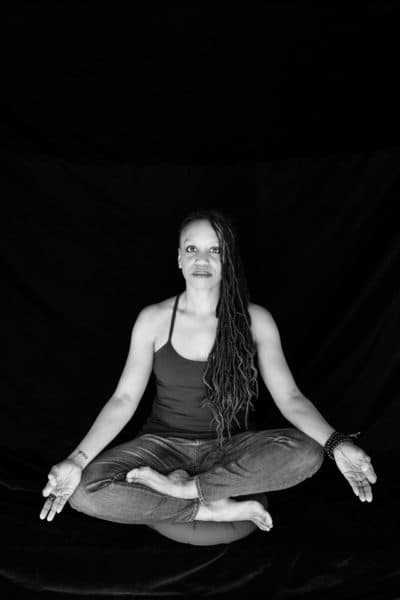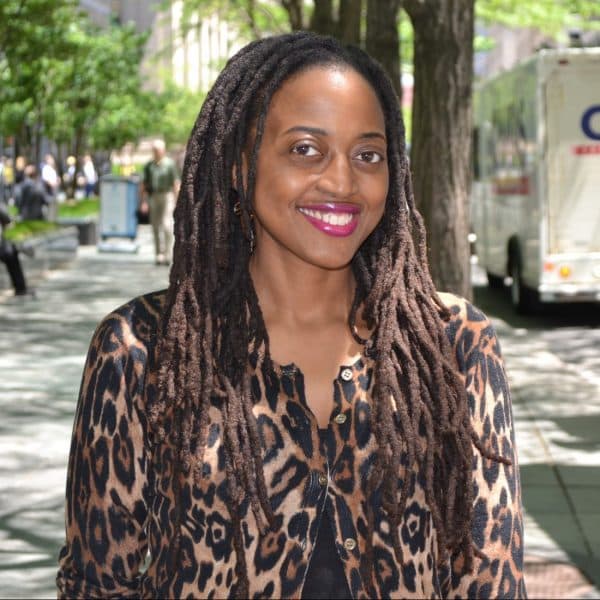Advertisement
Using Online Meditation To Cultivate Community In A Time Of Unrest
Finding tranquility amid coronavirus concerns might prove difficult for some. As cases of the virus continue to surge, many are turning to Netflix Party dates, Instagram concerts and virtual dance classes to pass the time and stay active. But what can one do to calm the mind and ease the spirit?
Meditation is one of the tools I use to manage life’s stressors. Typically, I spend most mornings doing guided meditations via phone apps to take a short journey inward to relax and reassess. Since COVID-19 has me house-bound though, the solitude I typically relish is blossoming into loneliness and virtual gatherings offer a way to re-establish connections with others.
To assist, Boston-based choreographer and yoga instructor Melissa Alexis hosts weekly online meditation sessions each Wednesday. Trained in meditation, Alexis is also the founder of Cultural Fabric, an organization that uses mindfulness as a tool to address both personal and organizational development. Her free, half-hour meetings focus on breathing and aim to help us find serenity and cultivate community during this time of societal upheaval.
Last year, I learned of Cultural Fabric through the Young Nonprofit Professionals Network’s listserv. Alexis emailed the group about the Healing Arts Institute (HEAL), her organization’s crown program that guides participants in critical race inquiry and healing, and supports them in bringing mindfulness-based practices back to their workplaces or communities. The program — which I applied to and attended on partial scholarship — sparked interest because I participated in a silent meditation retreat in New Mexico the previous summer. After the eye-opening trip, I was ready to delve deeper into the concept of mindfulness. As a HEAL resident scholar, I explored a variety of tools such as movement, music, journaling and meditation.

Meditation was introduced to me a decade earlier by a church leader who started her meetings with breathing exercises. However, it took time and several of life’s obstacles before I let it take hold. Recently, I’ve worked to make meditation part of my daily routine. So, when I saw Cultural Fabric’s email about online meditation, I was eager to take part.
By utilizing a mix of platforms including Zoom, Google Hangouts and the phone, participants can see, hear and practice with one another with Alexis’ guidance. Community is at the heart of her work and she believes that connection is “part of the antidote to this time of isolation,” Alexis says. “With the viral pandemic… it's critical for us to be able to manipulate our energies and stabilize our minds and our bodies to find some balance even as things externally keep turning and churning.”
At the start of a recent meditation session — which can be done a variety of ways including sitting, walking and laying down — Alexis first asks what the group needs. Then, she instructs everyone to find a comfortable position, close their eyes and breathe in for four counts and breathe out for four counts. This practice of controlled breathing is called pranayama. Breath is our life-force energy, Alexis tells me, and regulation is used “as a way to observe the breath which is considered a portal to take us to [a] higher consciousness.”
Advertisement
Throughout the time together, there are shoulder rolls, hand movements and other directives. Finally, at the session’s end, members share what happened or what changed if they’re moved to do so. Some of the participants offer up platitudes of gratefulness and peace.
That peace, even if it’s fleeting is a welcome respite. Nonessential businesses and schools are closed, residents must remain inside their homes and the stress of uncertainty can weigh heavy on the heart. But meditation — which anyone can do alone or with guidance — might be of comfort.
The National Center for Complementary and Integrative Health sites that meditation may improve anxiety, lower blood pressure and relieve stress, fatigue and general mood and sleep disturbances for people who suffer from cancer symptoms and treatment side effects.
The breathing techniques utilized during meditation, Alexis explains, “help us control our nervous system, so we're able to activate what's called the parasympathetic nervous system.” That mechanism “takes us out of fight or flight…so we're able to self-regulate better and to feel a sense of calm.”
Photographer Jourdan Christopher, a previous HEAL participant, says meditation has given him a deeper understanding of himself and of the relationship with his thoughts and feelings. It’s also given him “a wider span of control of my experience and my perception of my experience,” he says.
Mindfulness is the through-line for all of Alexis’ work with Cultural Fabric, which was founded in 2016, and centers on supporting individuals, businesses and communities to elevate internal consciousness and transform social environments.
Alexis strives for the union of “mind, body, spirit” with her meditation and yoga teachings. For her, it’s a spiritual practice. And apart from religion, or a faith tradition, it’s about “really tapping into a sense of divine consciousness, which we all have and that we all have available,” she shares.
In addition to online meditation, Alexis suggests self-care, calling loved ones and holding people in your heart as other ways to cope. The long-time dancer with a degree in psychology also urges others to make space for laughter. “It’s contagious. I know it’s a challenging time,” Alexis says. “But we still need laughter.”
Melissa Alexis offers free online meditation on Wednesdays at noon and 8 p.m. and donation-based yoga on Mondays, Wednesdays and Fridays at 4:30 p.m. Register here.
